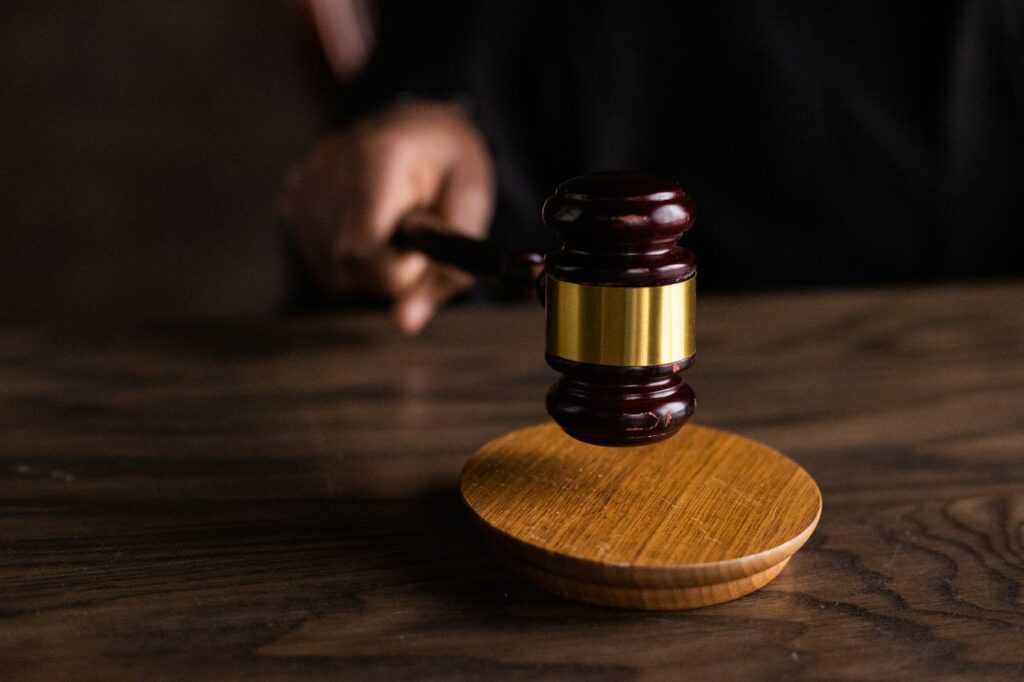In a recent turn of events, the Drug Enforcement Administration (DEA) has found itself under scrutiny for its decision to terminate an exceptional special agent, Anthony Armour, who had dedicated 16 years of his life to the agency.
The reason? He tested positive for THC after using a CBD product as an alternative to opioids for pain relief. This article delves into the details of this controversial case and the legal battle that has ensued between Armour and the DEA.

What Happened Between Armour and the DEA?
Anthony Armour’s story began when he turned to a CBD product in an attempt to manage his pain.
Believing it to be legal hemp, he never anticipated the consequences that would follow. Unfortunately, his drug test revealed the presence of THC, the psychoactive component of marijuana, leading to his termination.
Armour’s Lawsuit Against the DEA
Unwilling to accept his dismissal, Armour filed a lawsuit against the DEA in May, citing several grounds for reversal. He argued a lack of substantial evidence that he knowingly used an illegal drug and highlighted his impeccable professional record as mitigating factors.
DEA’s Defense
The DEA, on the other hand, vehemently defended its decision. In their response brief to the U.S. Court of Appeals for the Federal Circuit, the agency maintained that Armour’s arguments lacked merit. They asserted that his case could not undermine well-established federal drug policies or the standard of review.
The agency contended that Armour’s actions were reckless, leading to a verified positive drug test, which justified his termination.
The Controversy
The heart of this controversy lies in the interpretation of what constitutes an “illegal drug.” The DEA relied on a Reagan-era executive order that defines illegal drugs as Schedule I or Schedule II controlled substances not prescribed by a medical professional.
Questions have arisen about whether federal employees like Armour would face such penalties for marijuana if it were moved to Schedule III, a recommendation made by the U.S. Department of Health and Human Services (HHS) as part of an ongoing scheduling review.
The Ongoing Battle
DEA reiterated that Armour’s 16 years of service, outstanding performance ratings, and support from supervisors and colleagues could be seen as mitigating factors, but not enough to justify reversing the termination.
Matt Zorn, the attorney representing Armour, raised an intriguing question: Why is the DEA, an agency purportedly focused on combating the opioid epidemic, defending the termination of an agent who sought pain relief through a product he believed to be CBD? Especially when, since Armour’s termination in 2020, the DEA clarified that its agents are not allowed to use CBD due to the risks of mislabeling and accidental THC exposure.
Our Stance
As the debate surrounding CBD and THC continues, it’s clear that these compounds have captured our attention, whether in the context of a legal battle or as a solution for those seeking natural alternatives. At Fairwinds, we understand the significance of cannabinoids in the world of wellness.
Our premium CBD and THC products are meticulously crafted to meet the highest quality standards, offering you a range of options to explore the potential benefits these compounds can provide. Discover our carefully curated selection today and embark on your own journey toward balance and relief with confidence. Visit [Your Website] to explore our wide array of CBD and THC offerings tailored to your needs.

Conclusion
As the legal battle rages on, the DEA’s strict adherence to marijuana’s Schedule I classification remains a central point of contention. With shifting attitudes toward cannabis and ongoing debates about its legality, the outcome of this case could have significant implications for federal drug policies.
Stay tuned for further developments in this high-stakes showdown between an “outstanding” agent and the agency that terminated him.
FREQUENTLY ASKED QUESTIONS
Q1: What prompted the DEA to terminate Special Agent Anthony Armour? A1: Special Agent Anthony Armour was terminated by the DEA after testing positive for THC, the psychoactive component of marijuana. He had used a CBD product for pain relief, believing it to be legal hemp, but the drug test results led to his dismissal.
Q2: Why did Anthony Armour file a lawsuit against the DEA? A2: Anthony Armour filed a lawsuit against the DEA in May, seeking to reverse his termination. He cited several grounds for his legal challenge, including a lack of substantial evidence that he knowingly used an illegal drug and highlighting his exemplary professional record as mitigating factors.
Q3: What is the DEA’s defense for terminating Anthony Armour? A3: The DEA defended its decision by asserting that Armour’s actions were reckless. Despite his outstanding career and performance ratings, the agency argued that he knowingly consumed a product with trace amounts of THC, which warranted his removal.
Q4: What is the controversy surrounding the definition of an “illegal drug”? A4: The controversy arises from the DEA’s use of a Reagan-era executive order to define an “illegal drug” as any Schedule I or Schedule II controlled substance not prescribed by a medical professional. Questions have been raised about whether this definition would still apply if marijuana were moved to Schedule III, as recommended by the U.S. Department of Health and Human Services.
Q5: How does this case relate to broader discussions about CBD and THC products? A5: This case highlights the complexities and legal uncertainties surrounding the use of CBD and THC products, even for federal employees. As the debate continues, individuals seeking natural alternatives should carefully consider the legal landscape and product regulations.
Q6: Where can I learn more about CBD and THC products mentioned in the article? A6: To explore a wide range of premium CBD and THC products that adhere to strict quality standards, visit [Your Company Name]’s website at [Your Website URL]. Our products are designed to provide you with potential wellness benefits while ensuring product safety and compliance.
